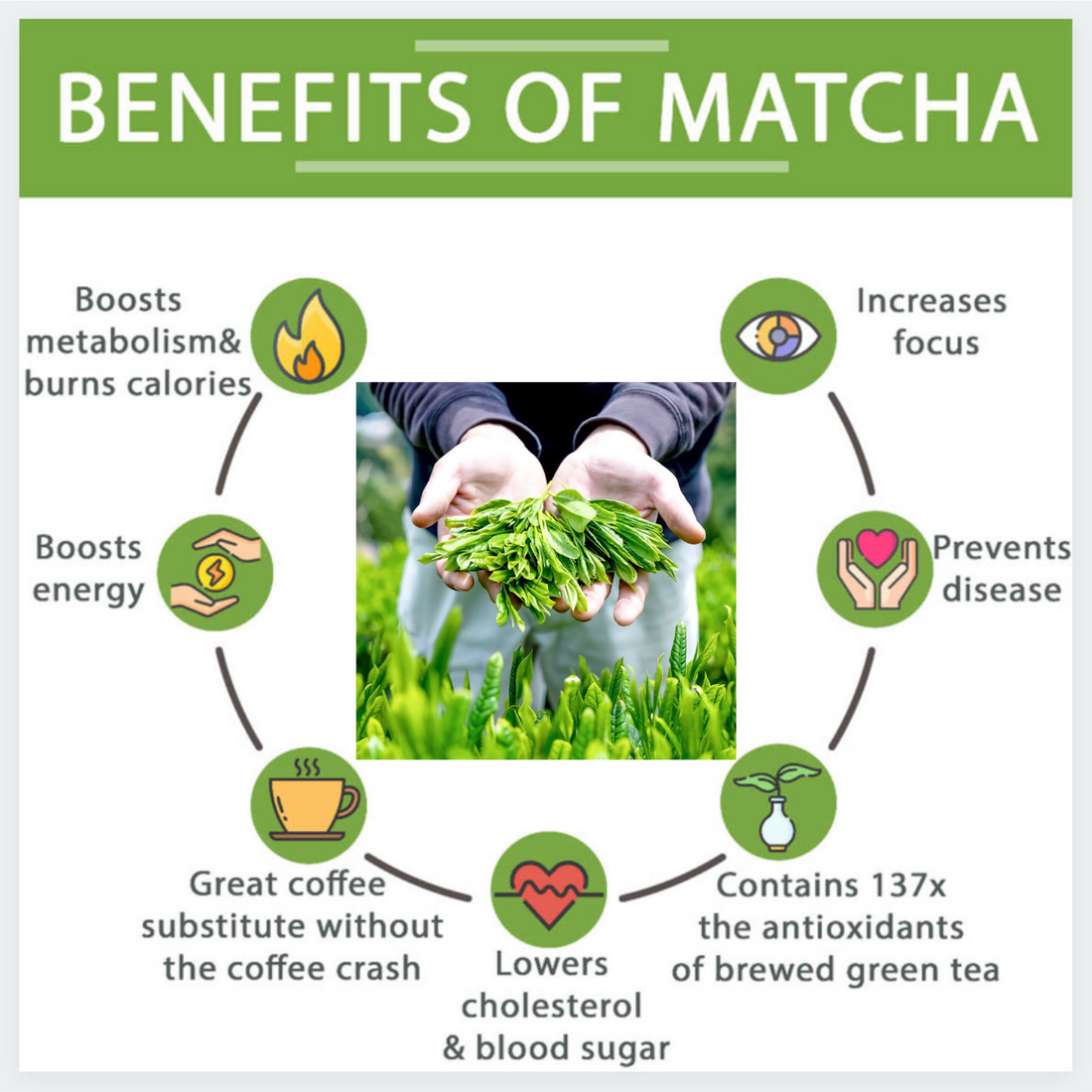
This article dives into the health aspects of each option and explores why making a homemade matcha latte with high-quality matcha powder, such as Aki Matcha, might be your best bet.

Matcha is a type of powdered green tea that originates from Japan. Unlike traditional green tea, where leaves are steeped and then discarded, matcha involves consuming the whole leaf, providing more nutrients and antioxidants. The primary benefits of matcha include:
- High in Antioxidants: Matcha is rich in catechins, particularly EGCG (epigallocatechin gallate), which have cancer-fighting properties.
- Boosts Metabolism: Matcha can help increase calorie burn and fat oxidation.
- Calm Energy Boost: Matcha provides a balanced energy boost without the jitters commonly associated with coffee, thanks to its L-theanine content.
Starbucks Matcha Latte
Ingredients and Nutritional ProfileStarbucks Matcha Latte is a popular choice for many. It’s made with a blend of matcha powder and milk, which can be customized with various milk alternatives like almond, soy, or coconut milk. However, the matcha powder used by Starbucks is pre-sweetened, meaning it contains added sugar.
A typical Grande (16 oz) Starbucks Matcha Latte with 2% milk contains:
- Calories: 240
- Fat: 7g
- Carbohydrates: 34g
- Sugar: 32g
- Protein: 12g
Health Considerations
The primary concern with the Starbucks Matcha Latte is the sugar content. With 32 grams of sugar per serving, it exceeds the American Heart Association's recommended daily limit for added sugars (25 grams for women and 36 grams for men). The added sugars can negate some of the health benefits of matcha, potentially leading to weight gain and increased risk of chronic diseases if consumed regularly.
Dunkin’ Donuts Matcha Latte
Ingredients and Nutritional ProfileDunkin’ Donuts also offers a matcha latte made from a similar pre-sweetened matcha powder mixed with milk. Customers can choose from whole milk, skim milk, or milk alternatives.
A medium (16 oz) Dunkin’ Donuts Matcha Latte with whole milk contains:
- Calories: 250
- Fat: 9g
- Carbohydrates: 36g
- Sugar: 28g
- Protein: 12g
Health Considerations
Like Starbucks, Dunkin’ Donuts matcha lattes are high in sugar. With 28 grams of sugar per serving, it also surpasses the recommended daily limit for added sugars. While it provides a convenient way to enjoy matcha, the high sugar content makes it a less healthy option compared to unsweetened or minimally sweetened alternatives.
Homemade Matcha Latte
Ingredients and Nutritional ProfileMaking a matcha latte at home allows you to control the ingredients and tailor the drink to your dietary preferences. Using high-quality matcha powder, such as Aki Matcha, ensures you get the maximum health benefits. A simple homemade matcha latte can be made with matcha powder, hot water, and your choice of milk or milk alternative.
A homemade matcha latte made with Aki Matcha, almond milk, and a small amount of honey or no sweetener contains:
- Calories: 50-100 (depending on milk and sweetener choice)
- Fat: 2-5g
- Carbohydrates: 5-10g
- Sugar: 0-5g (depending on sweetener choice)
- Protein: 1-3g
Health Considerations
By making your own matcha latte, you can significantly reduce the sugar content and customize the drink to fit your nutritional needs. Using Aki Matcha ensures you are consuming a high-quality, organic matcha powder that is rich in antioxidants and free from additives.
***Why Choose Aki Matcha for Your Homemade Latte?
Aki Matcha offers several advantages:
- Organic and High-Quality: Aki Matcha is sourced from the best organic tea farms in Japan, ensuring purity and quality.
- Rich in Nutrients: Aki Matcha contains higher levels of antioxidants, vitamins, and minerals compared to lower-grade matcha powders.
- Versatility: Aki Matcha can be used in various recipes, not just lattes. It’s perfect for smoothies, baking, and culinary applications.
- Wholesale and Bulk Options: Aki Matcha is available for wholesale and in bulk, making it a cost-effective choice for regular consumers and businesses alike.
Conclusion: The Healthier Choice
While Starbucks and Dunkin’ Donuts offer convenient options for enjoying a matcha latte, the high sugar content in their drinks makes them less healthy choices compared to homemade alternatives. By making a matcha latte at home with Aki Matcha, you can control the ingredients, reduce sugar intake, and maximize the health benefits of matcha. Plus, buying matcha powder wholesale or in bulk from Aki Matcha can save you money and ensure you always have a supply of high-quality matcha on hand.
Incorporating matcha into your daily routine can offer numerous health benefits, and with Aki Matcha, you can enjoy these benefits in the most natural and nutritious way possible. So, next time you crave a matcha latte, consider making it at home with Aki Matcha for a healthier and more satisfying drink.
---------------------------------------
Follow us on Instagram: here
https://www.instagram.com/aki.matcha.official/


1 comment
I love aki matcha, really delicious. Healthy way to kick off your day!